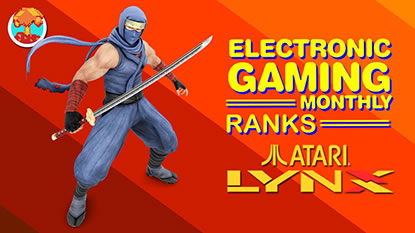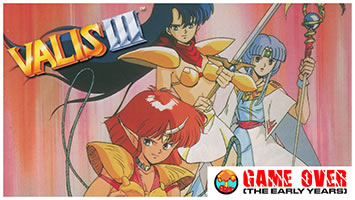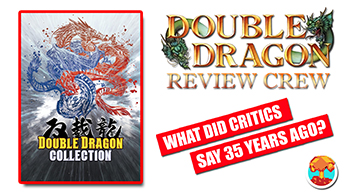- CLASSIC MAGAZINES
- REVIEW CREW
A show recapping what critics thought back
when classic games first came out! - NEXT GENERATION'S BEST & WORST
From the worst 1-star reviews to the best
5-stars can offer, this is Next Generation! - NINTENDO POWER (ARCHIVE)
Experience a variety of shows looking at the
often baffling history of Nintendo Power! - MAGAZINE RETROSPECTIVE
We're looking at the absolutely true history of
some of the most iconic game magazines ever! - SUPER PLAY'S TOP 600
The longest and most ambitious Super NES
countdown on the internet! - THEY SAID WHAT?
Debunking predictions and gossip found
in classic video game magazines! - NEXT GENERATION UNCOVERED
Cyril is back in this spin-off series, featuring the
cover critic review the art of Next Generation! - HARDCORE GAMER MAGAZING (PDF ISSUES)
Download all 36 issues of Hardcore Gamer
Magazine and relive the fun in PDF form!
- REVIEW CREW
- ELECTRONIC GAMING MONTHLY
- ELECTRONIC GAMING MONTHLY RANKS
From Mario to Sonic to Street Fighter, EGM
ranks classic game franchises and consoles! - ELECTRONIC GAMING MONTHLY BEST & WORST
Counting down EGM’s best and worst reviews
going year by year, from 1989 – 2009! - ELECTRONIC GAMING BEST & WORST AWARDS
11-part video series chronicling the ups and
downs of EGM’s Best & Worst Awards!
- ELECTRONIC GAMING MONTHLY RANKS
- GAME HISTORY
- GAME OVER: STORY BREAKDOWNS
Long-running series breaking down game
stories and analyzing their endings! - A BRIEF HISTORY OF GAMING w/ [NAME HERE]
Real history presented in a fun and pithy
format from a variety of game historians! - THE BLACK SHEEP
A series looking back at the black sheep
entries in popular game franchises! - INSTANT EXPERT
Everything you could possibly want to know
about a wide variety of gaming topics! - FREEZE FRAME
When something familiar happens in the games
industry, we're there to take a picture! - I'VE GOT YOUR NUMBER
Learn real video game history through a series
of number-themed episodes, starting at zero! - GREAT MOMENTS IN BAD ACTING
A joyous celebration of some of gaming's
absolute worst voice acting!
- GAME OVER: STORY BREAKDOWNS
- POPULAR SHOWS
- DG NEWS w/ LORNE RISELEY
Newsman Lorne Riseley hosts a regular
series looking at the hottest gaming news! - REVIEW REWIND
Cyril replays a game he reviewed 10+ years
ago to see if he got it right or wrong! - ON-RUNNING FEUDS
Defunct Games' longest-running show, with
editorials, observations and other fun oddities! - DEFUNCT GAMES QUIZ (ARCHIVE)
From online quizzes to game shows, we're
putting your video game knowledge to the test!- QUIZ: ONLINE PASS
Take a weekly quiz to see how well you know
the news and current gaming events! - QUIZ: KNOW THE GAME
One-on-one quiz show where contestants
find out if they actually know classic games! - QUIZ: THE LEADERBOARD
Can you guess the game based on the classic
review? Find out with The Leaderboard!
- QUIZ: ONLINE PASS
- DEFUNCT GAMES VS.
Cyril and the Defunct Games staff isn't afraid
to choose their favorite games and more! - CYRIL READS WORLDS OF POWER
Defunct Games recreates classic game
novelizations through the audio book format!
- DG NEWS w/ LORNE RISELEY
- COMEDY
- GAME EXPECTANCY
How long will your favorite hero live? We crunch
the numbers in this series about dying! - VIDEO GAME ADVICE
Famous game characters answer real personal
advice questions with a humorous slant! - FAKE GAMES: GUERILLA SCRAPBOOK
A long-running series about fake games and
the people who love them (covers included)! - WORST GAME EVER
A contest that attempts to create the worst
video game ever made, complete with covers! - LEVEL 1 STORIES
Literature based on the first stages of some
of your favorite classic video games! - THE COVER CRITIC
One of Defunct Games' earliest shows, Cover
Critic digs up some of the worst box art ever! - COMMERCIAL BREAK
Take a trip through some of the best and
worst video game advertisements of all time! - COMIC BOOK MODS
You've never seen comics like this before.
A curious mix of rewritten video game comics!
- GAME EXPECTANCY
- SERIES ARCHIVE
- NINTENDO SWITCH ONLINE ARCHIVE
A regularly-updated list of every Nintendo
Switch Online release, plus links to review! - PLAYSTATION PLUS CLASSIC ARCHIVE
A comprehensive list of every PlayStation
Plus classic release, including links! - RETRO-BIT PUBLISHING ARCHIVE
A regularly-updated list of every Retro-Bit
game released! - REVIEW MARATHONS w/ ADAM WALLACE
Join critic Adam Wallace as he takes us on a
classic review marathon with different themes!- DEFUNCT GAMES GOLF CLUB
Adam Wallace takes to the links to slice his way
through 72 classic golf game reviews! - 007 IN PIXELS
Adam Wallace takes on the world's greatest spy
as he reviews 15 weeks of James Bond games! - A SALUTE TO VAMPIRES
Adam Wallace is sinking his teeth into a series
covering Castlevania, BloodRayne and more! - CAPCOM'S CURSE
Adam Wallace is celebrating 13 days of Halloween
with a line-up of Capcom's scariest games! - THE FALL OF SUPERMAN
Adam Wallace is a man of steel for playing
some of the absolute worst Superman games! - THE 31 GAMES OF HALLOWEEN
Adam Wallace spends every day of October afraid
as he reviews some of the scariest games ever! - 12 WEEKS OF STAR TREK
Adam Wallace boldly goes where no critic has
gone before in this Star Trek marathon!
- DEFUNCT GAMES GOLF CLUB
- DAYS OF CHRISTMAS (ARCHIVE)
Annual holiday series with themed-episodes
that date all the way back to 2001!- 2015: 30 Ridiculous Retro Rumors
- 2014: 29 Magazines of Christmas
- 2013: 29 Questionable Power-Ups of Christmas
- 2012: 34 Theme Songs of Christmas
- 2011: 32 Game Endings of Christmas
- 2010: 31 Bonus Levels of Christmas
- 2009: 30 Genres of Christmas
- 2008: 29 Controls of Christmas
- 2007: 34 Cliches of Christmas
- 2006: 33 Consoles of Christmas
- 2005: 32 Articles of Christmas
- 2004: 31 Websites of Christmas
- 2003: 29 Issues of Christmas
- 2002: 28 Years of Christmas
- 2001: 33 Days of Christmas
- NINTENDO SWITCH ONLINE ARCHIVE
- REVIEW ARCHIVE
- FULL ARCHIVE
Electronic Gaming Monthly's Top 10 Dragon Quest & Dragon Warrior Games
This weekend brought the sad and tragic news that legendary artist Akira Toriyama passed away at the age of 68. Although he's probably best known for Dragon Ball, Toriyama also had one foot in the video game world, creating characters for genuine classics like Chrono Trigger and the Tobal series. Perhaps his biggest gaming contribution came as a character designer for the long-running (and hugely influential) Dragon Quest franchise, a line-up of games so popular that it's practically a holiday in Japan every time a new one comes out. With all of these loving tributes to Akira Toriyama, it made me wonder what Electronic Gaming Monthly thought of the Dragon Quest series. Did they have a favorite installment?
As it turns out, EGM reviewed a total of ten games in the Dragon Quest series. About half of these reviews came when the series was still going by Dragon Warrior in the West, and the rest is Dragon Quest and its various spin-offs. Unfortunately, as is often the case with a franchise that has been around this long, there are a bunch of titles Electronic Gaming Monthly failed to review, but they hit a lot of the classics and I think we have enough here for a fun (and surprisingly competitive) top ten list. What we're going to do today is countdown the best and worst Dragon Quest games using Electronic Gaming Monthly's own words and scores. There's no editorializing here, we're just going to focus on what the critics said back when these games first came out. Get ready to stumble into a bunch of random battles, because that's what happens when EGM ranks Dragon Quest and Dragon Warrior.
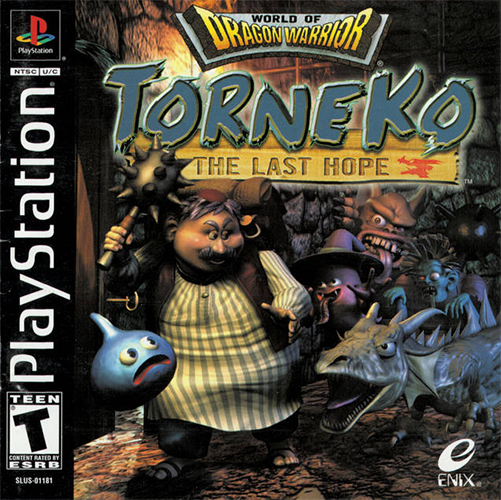
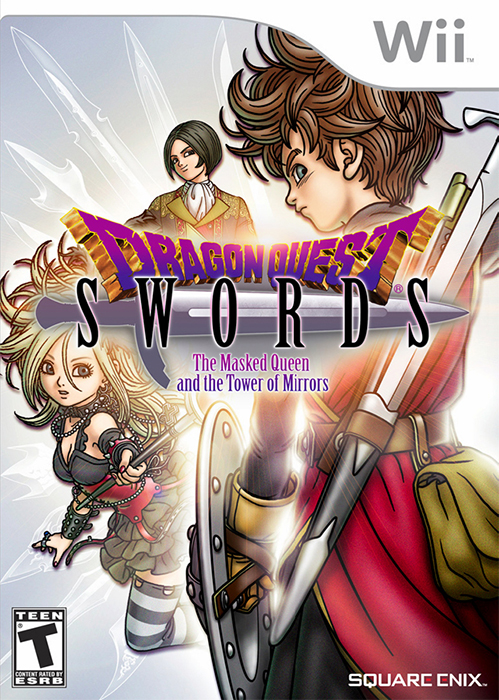
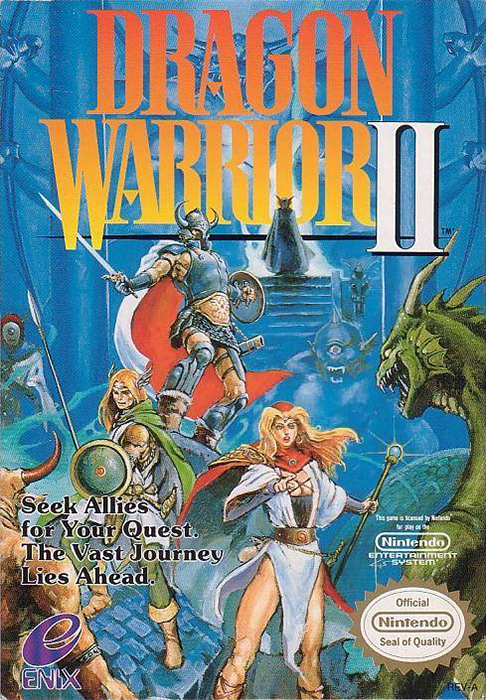
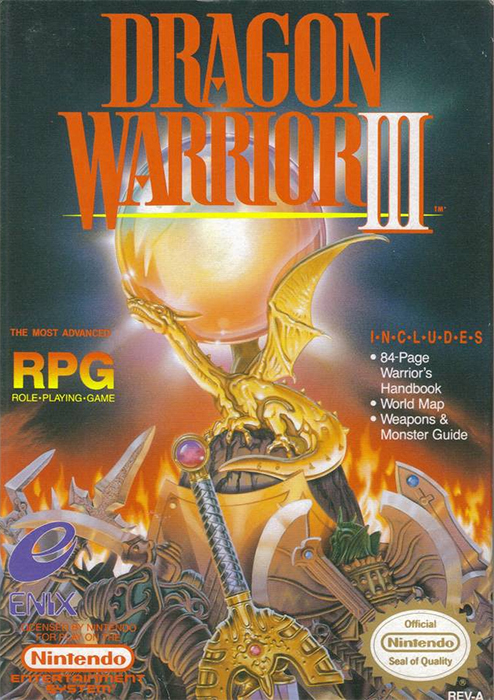
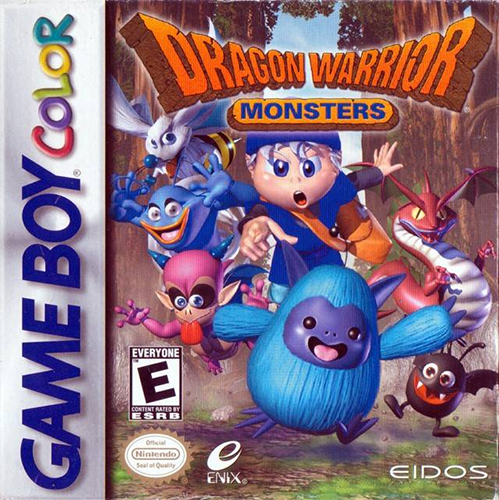
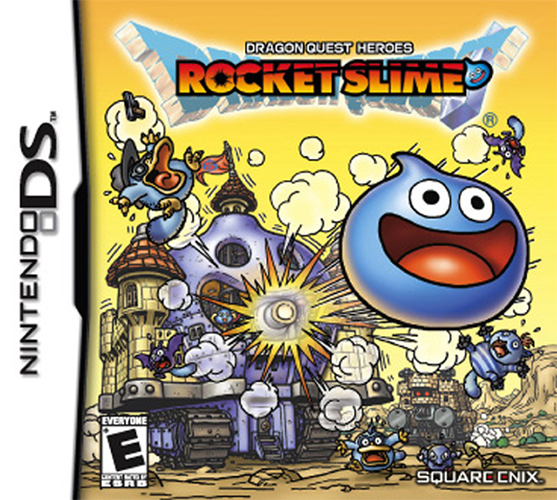
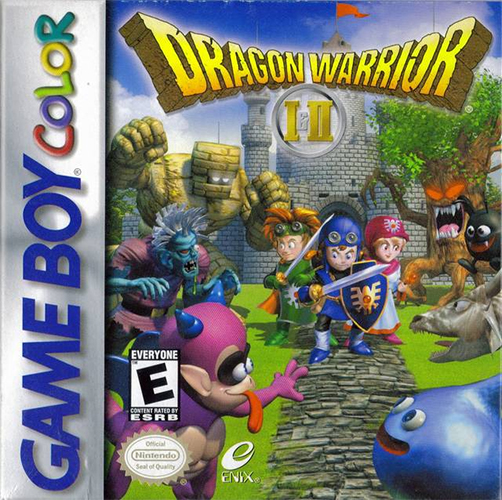
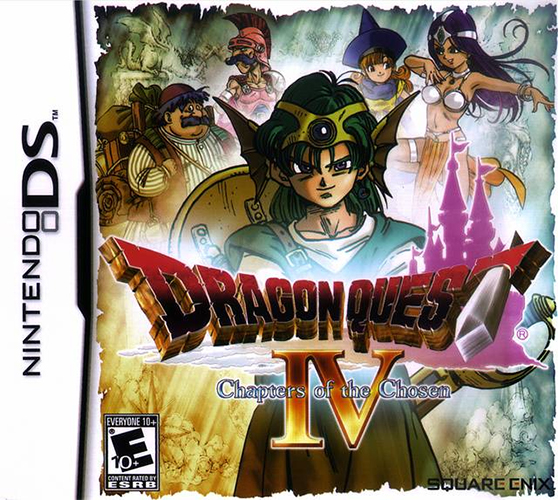
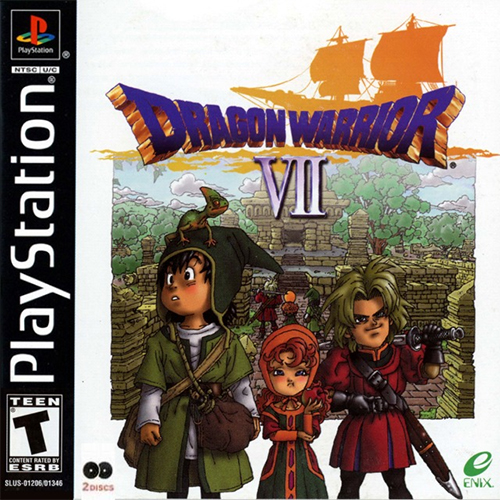
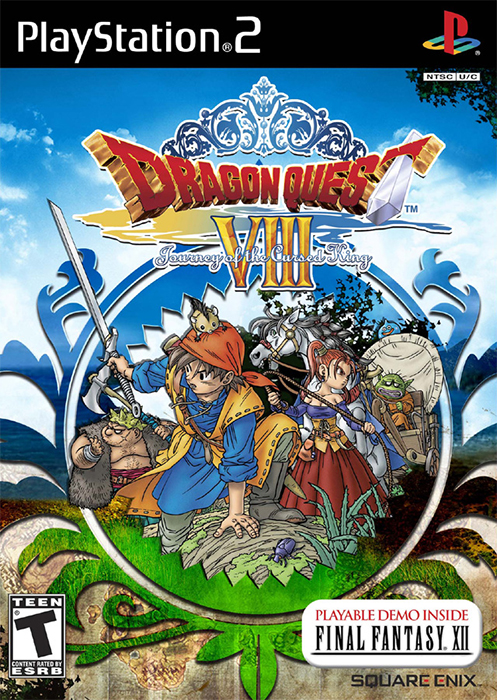
As it turns out, EGM reviewed a total of ten games in the Dragon Quest series. About half of these reviews came when the series was still going by Dragon Warrior in the West, and the rest is Dragon Quest and its various spin-offs. Unfortunately, as is often the case with a franchise that has been around this long, there are a bunch of titles Electronic Gaming Monthly failed to review, but they hit a lot of the classics and I think we have enough here for a fun (and surprisingly competitive) top ten list. What we're going to do today is countdown the best and worst Dragon Quest games using Electronic Gaming Monthly's own words and scores. There's no editorializing here, we're just going to focus on what the critics said back when these games first came out. Get ready to stumble into a bunch of random battles, because that's what happens when EGM ranks Dragon Quest and Dragon Warrior.

Torneko: The Last Hope (PlayStation)#9“Usually when you hear the term ‘dungeon crawl,' it's just a figure of speech for a game where you spend lots of time wandering around dungeons. But with Torneko, I mean it literally: The whole game is a series of randomly generated mazes, filled with random monsters and random items. There are a few nice additions here, but it lacks the item combining and companion system that added at least a little spark to Chocobo's Dungeon. My main problem with these games is not the plain graphics or simple gameplay, it's that they are just too random. Whether or not you make it through a dungeon has as much to do with luck as strategy.” (4.5 out of 10)

Dragon Quest Swords: The Masked Queen and the Tower of Mirrors (Wii)#9“Wii motion controls are great when they help transform complex interfaces into something simpler and intuitive. Swords, alas, is the OTHER kind of Wii game: One built on the premise that replacing substance with flailing is a satisfying trade-off. It plays like a dumbed-down Dragon Quest, with a single town and on-rails dungeons but nevertheless a need to go through the experience-point grind for levels. It's too poky and awkward to work as a new-age light-gun shooter, too shallow to work as an RPG and too mediocre to merit attention.” (5.7 out of 10)

Dragon Warrior II (NES)#8“Dragon Warrior, Nintendo's wannabe Ultima, was inferior in many ways to the first Ultima just as Dragon Warrior II is inferior to Avatar. Dragon Warrior II has faithfully cloned nearly every aspect of the original Ultima (moon gates are now referred to as travel doors). A good role-playing game, but why settle for second best?” (6 out of 10)

Dragon Warrior III (Game Boy Color)#7“It's great to see games like this being redone for the Game Boy Color. I really hope the trend continues on the Game Boy Advance. Unfortunately, while these portable adaptations of classic RPGs are a great way to relive the early days of the genre, they're also a constant reminder of how far we've come. If it weren't for the fact that you have to walk around aimlessly and build your levels to a ridiculous degree in order to complete the simplest tasks, I'd probably have scored this game a little higher. We've come a long way; endless level-building is an obsolete play mechanic.” (7 out of 10)

Dragon Warrior Monsters (Game Boy Color)#6“Dragon Warrior Monsters may look like the most blatant Poké-ripoff since that Monster Rancher cartoon, but you'll find enough subtle differences here to make the game worthwhile. For starters, combat is a whole different animal; it feels like a more traditional RPG. Battles go by quickly and are easier to set up. You can even breed monsters. On the downside, Dragon Warrior Monsters suffers from a weak story. It doesn't pull you in nearly as quickly as Pokémon.” (7.6 out of 10)

Dragon Quest Heroes: Rocket Slime (Nintendo DS)#5“Rocket Slime is that rarest of breeds: A kids' game that completely rocks. Sure, the main adventure is basically a low-carb version of Zelda, but two elements elevate this experience to excellence. One is the brilliantly over-the-top translation, laden with incessant puns and in-jokes that perfectly complement the ridiculous premise. The other: The tactical tank battles, which use the upper screen to transform the standard slime-snapping action into a war game. Angry dudes, beware – you'll encounter more goofy cheer in this one game than in most consoles' entire lineups.” (8 out of 10)

Dragon Warrior I & II (Game Boy Color)#4“Dragon Warrior I & II is like an old favorite couch – nothing fancy, kinda ratty and ancient-looking, but solidly built with a comfortable, familiar feeling that I love. The story, combat system and pretty much everything else is right out of the RPG cliché handbook – but so what? It works fine, it's fun to play and I don't expect stunning originality of a Final Fantasy-caliber experience from the Game Boy. Be warned: The old-school character-building methods are in full effect here, so if you don't like repetitive combat to strengthen your party, you'll definitely want to pass.” (8.3 out of 10)

Dragon Quest IV: Chapters of the Chosen (Nintendo DS)#3“Aside from its PlayStation-style visuals, Dragon Quest IV: Chapters of the Chosen isn't terribly different from the game NES owners played years ago as Dragon Warrior IV. But perhaps owing to the series' simple, traditional feel, its humble graphics and familiar role-playing game mechanics feel more at home on the DS than it more daring contemporary, Final Fantasy IV. Or maybe it's just that rather than focusing on melodrama and innovation, Dragon Quest is about creating a well-defined cast of characters and an open world full of mysteries and then setting the player loose to find their way. Dragon Quest has always been a stolid counterpoint to Final Fantasy: predictable but full of heart. This remake won't wow anyone with its looks, but give it a chance. It'll win you over with its personality.” (B+ out of A+)

Dragon Warrior VII (PlayStation)#2“The best-selling Japanese PlayStation game looks like this? Yep. In order to appreciate Dragon Warrior VII, you simply must look past the squatty characters and chunky dungeons. Still with me? Good. Now, look instead at the infinitely complex job system, unconventional storyline and daunting 100-hour quest. That's not a typo. While most RPGs end by the 40-hour mark, in Dragon Warrior VII, you're just scratching the surface. The hardcore difficulty might scare some away, but if you're looking for an RPG that truly feels like an epic adventure, this is it.” (8.5 out of 10)

Dragon Quest VIII: Journey of the Cursed King (PlayStation 2)#1“Dragon Quest VIII is so freaking big that it's almost like the dandy RPG fan's answer to Grand Theft Auto: San Andreas. And it's proof that taking an old-school gaming formula and giving it a dazzling face-lift can actually work. Dragon Quest VIII may play like it's 1995, but it's also easily one of 2005's best-looking PlayStation 2 games. On top of 60+ hours of questing, you also get neat side-quests like casino gambling, monster training and item creation. Even the game's very, very British voices are a hoot. Newer RPG fans may complain about its constant, turn-based battles and slow-paced leveling, but no matter how you feel about the gameplay, Dragon Quest VIII will certainly be the longest RPG in your collection.” (8.7 out of 10)
HOME |
CONTACT |
NOW HIRING |
WHAT IS DEFUNCT GAMES? |
NINTENDO SWITCH ONLINE |
RETRO-BIT PUBLISHING
Retro-Bit |
Switch Planet |
The Halcyon Show |
Same Name, Different Game |
Dragnix |
Press the Buttons
Game Zone Online | Hardcore Gamer | The Dreamcast Junkyard | Video Game Blogger
Dr Strife | Games For Lunch | Mondo Cool Cast | Boxed Pixels | Sega CD Universe | Gaming Trend
Game Zone Online | Hardcore Gamer | The Dreamcast Junkyard | Video Game Blogger
Dr Strife | Games For Lunch | Mondo Cool Cast | Boxed Pixels | Sega CD Universe | Gaming Trend
Copyright © 2001-2025 Defunct Games
All rights reserved. All trademarks are properties of their respective owners.
All rights reserved. All trademarks are properties of their respective owners.













